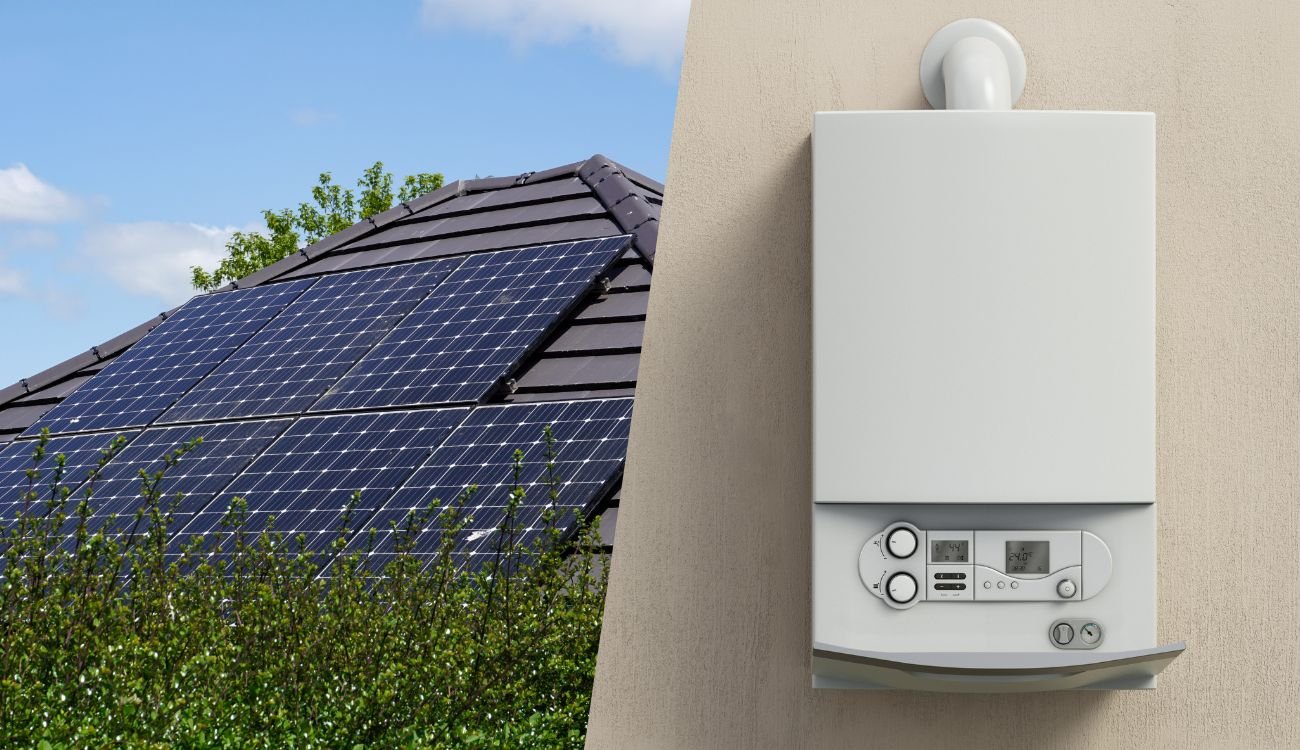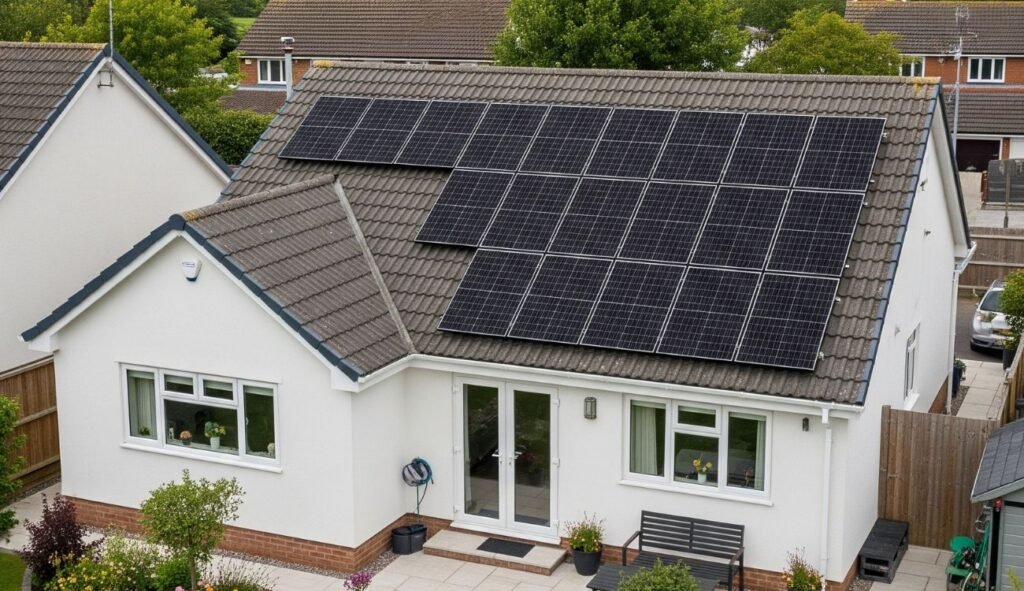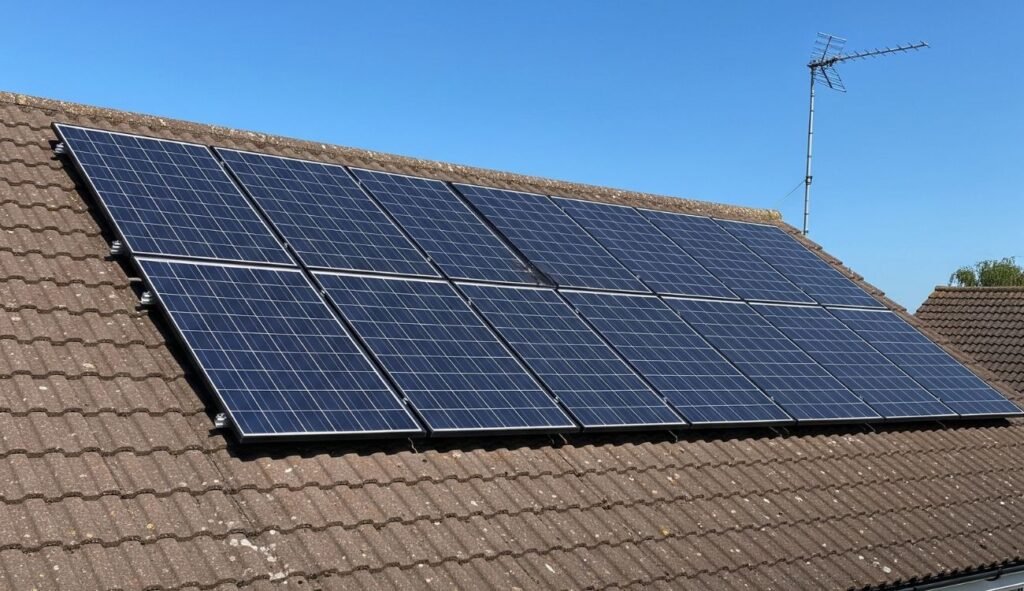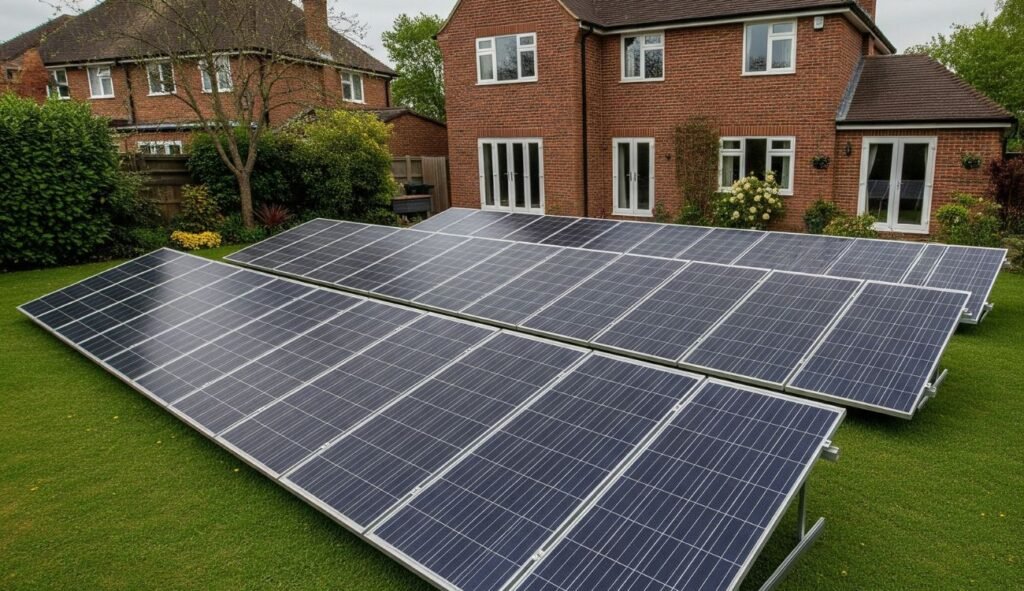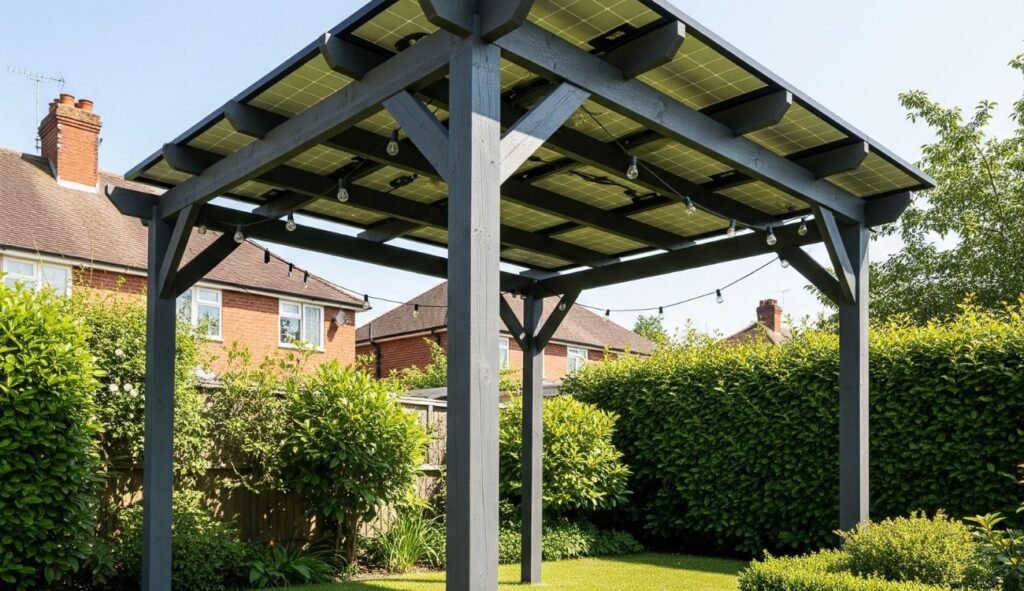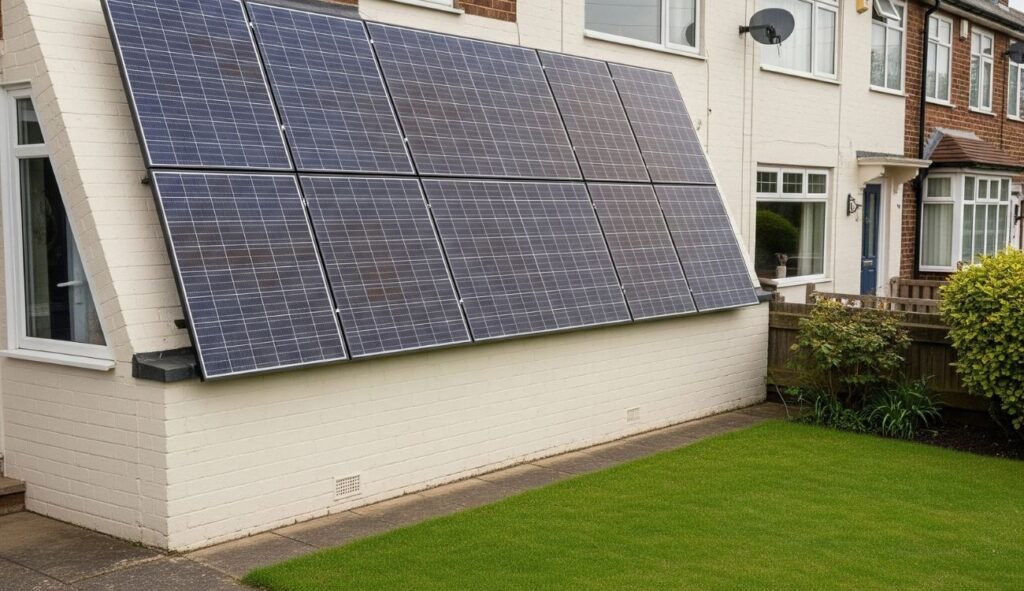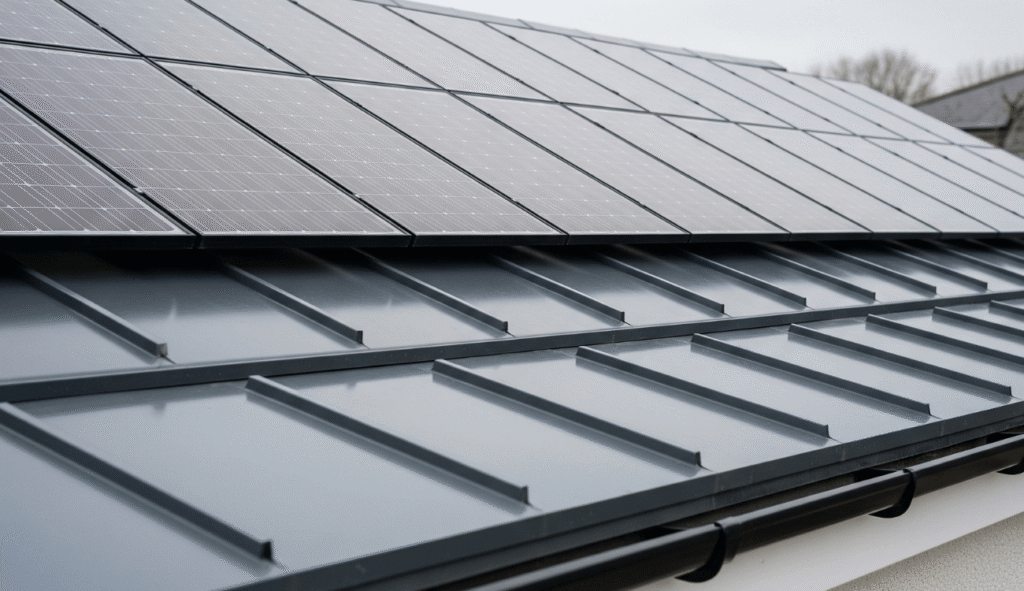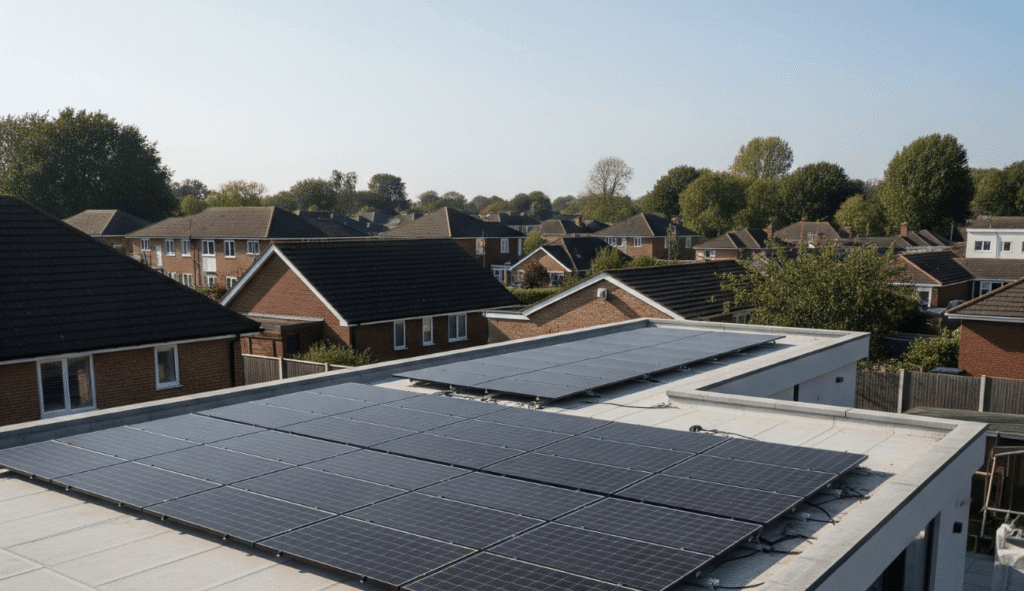As the UK pushes forward with its net-zero targets and rising energy costs continue to pressure households and businesses, many are turning to renewable solutions. One of the most commonly asked questions is: “Can you use solar panels with a combi boiler?”
This question isn’t just about technical compatibility, it’s about unlocking long-term savings, improving your property’s Energy Performance Certificate (EPC) rating, and doing your part for a greener future.
Whether you’re a UK homeowner upgrading your heating or a landlord improving tenant satisfaction and compliance this guide is for you.
How Do Solar Panels Work with Home Heating Systems?
Solar panels can work alongside your home heating system, but not all types of solar panels integrate in the same way. The key is understanding the difference between solar photovoltaic (PV) panels, which generate electricity, and solar thermal panels, which heat water.
Most UK homes use combi boilers, which heat water on demand and don’t use a hot water storage cylinder — a requirement for solar thermal systems. This makes solar PV the most compatible solar solution for combi boiler systems.
What are the different types of solar panels?
There are two main solar technologies relevant to heating:
- Solar Photovoltaic (PV) Panels: These generate electricity.
- Solar Thermal Panels: These heat water directly.
While solar PV is more common in the UK due to its versatility and year-round functionality, solar thermal can be used specifically to support water heating.
Can You Use Solar Panels with a Combi Boiler?
Yes, you can use solar panels with a combi boiler, but typically only if you install solar PV panels, not solar thermal. Solar PV panels can help reduce your electricity bills by powering your home’s electrical systems and, in some cases, electric combi boilers.
However, most gas combi boilers are not directly powered by electricity, meaning the benefit is indirect — you’ll save on electricity usage across your home, but not directly on water heating. Solar thermal panels, which preheat water, are generally not compatible with combi boilers because combis do not include a hot water cylinder.
If you are looking for an electric combi boiler in the North East of the UK to go with your solar panels, you can get a free online boiler installation quote from Future Heat to save money on your electricity bill.
Using Solar PV Panels with a Combi Boiler
You can use solar PV panels with a combi boiler to reduce your electricity consumption.
- Solar PV panels generate electricity during daylight hours.
- This electricity can power your combi boiler’s electrical components, pumps, and controls, reducing grid dependency.
- If you have an electric combi boiler, solar PV can offset heating costs directly.
However, most combi boilers are gas-powered, so solar PV won’t directly power the heating function, but it will support the home’s broader energy usage.
If you have an electric boiler, you can request a personalised solar panel quotation from Future Heat for solar panels in the Newcastle area.
Example:
A UK homeowner with a 4kW solar PV system can generate ~3,400 kWh annually. Even if just 30% is self-consumed, this reduces the home’s electricity bill significantly, especially if used with battery storage or smart controllers.
Using Solar Thermal with a Combi Boiler
This is not typically recommended. Here’s why:
- Solar thermal systems require a hot water storage cylinder.
- Combi boilers don’t work with cylinders; they heat water directly on demand.
- This incompatibility makes it difficult to use solar thermal alongside a standard combi boiler.
Possible workaround:
If you’re committed to solar thermal, you may need to replace the combi boiler with a system boiler and hot water tank, but this comes with higher upfront costs and space requirements.
What Size Solar Panel Can Power a Combi Boiler?
To power an electric combi boiler, you typically need a solar panel system between 3.5 kW and 5 kW, which equates to around 10 to 14 standard 350W solar panels. This setup can generate enough electricity to support the daily energy demands of an average boiler in a well-insulated UK home.
A 100 watt solar panel can power some appliances in your home, but it will likely have too little power for a combi boiler, so getting a larger solar panel system or more panels will be far more effective.
What Are the Best Options for Solar-Compatible Heating?
If you’re using a combi boiler and want to go solar, the best option is to install solar PV panels. These can work with both gas and electric combi boilers by reducing your overall electricity demand and offering long-term savings.
While solar PV won’t power the heating element of a gas boiler directly, it can power its electronics and other household needs, freeing up budget on energy costs. For homeowners looking to maximise efficiency, pairing PV panels with battery storage or smart diverters creates even more savings without replacing your boiler.
Hybrid Systems
Hybrid heating systems combine solar panels with modern electric heating solutions, like:
- Electric combi boilers paired with solar PV.
- Air source heat pumps for sustainable year-round heating.
- Solar-compatible hot water diverters to redirect excess solar electricity to immersion heaters.
These options align well with Smart Export Guarantee (SEG) schemes, where surplus energy can be sold back to the grid, offering further ROI.
What Are the Benefits for Homeowners, Landlords, and Businesses?
Whether you’re a homeowner, landlord, or business owner, using solar panels with your combi boiler setup brings a host of benefits. These include lower energy bills, improved property value through better EPC ratings, reduced carbon footprint, and eligibility for government incentives like the Smart Export Guarantee (SEG).
For landlords, solar also helps meet compliance with MEES regulations. Commercial properties benefit from scalability and enhanced ESG performance, making solar a smart financial and environmental investment.
For Homeowners
- Lower energy bills: Solar PV offsets electrical use year-round.
- Improved EPC rating: Especially valuable when selling your home.
- Eligibility for government incentives, including the 0% VAT on solar installations (until 2027).
For Landlords
- Boosts property value and tenant retention.
- Helps meet Minimum Energy Efficiency Standards (MEES) and avoid penalties.
- A key selling point for environmentally conscious renters.
For Commercial Properties
- Scalable installations for large buildings or multi-unit sites.
- Meets CSR and ESG goals.
- Cuts operating costs over the long term.
Enhanced BREEAM ratings and improved planning outcomes.
Are There Financial Incentives or Grants Available?
Yes, even if you have a combi boiler, there are several UK incentives that support solar panel installation. The most notable is the Smart Export Guarantee, which allows you to sell excess solar electricity back to the grid.
There’s also a 0% VAT incentive on solar technologies until 2027, and various local authority schemes like ECO4 or LA Flex may help lower-income households install energy-efficient upgrades. These incentives make solar adoption more affordable and increase long-term savings.
Smart Export Guarantee (SEG)
- Payback scheme for unused solar electricity.
- Overseen by Ofgem.
- Offered by energy suppliers like Octopus, E.ON, and EDF.
0% VAT on Solar Installations
- Valid until 2027 for domestic systems.
- Applies to solar panels, batteries, and heat pumps.
Local Authority Grants & Green Funding
- Schemes like ECO4 and LA Flex may support low-income households.
Visit gov.uk or Energy Saving Trust for current grant details.
Frequently Asked Questions (FAQs)
Not necessarily. If you install solar PV panels, you can continue using your existing combi boiler. You won’t need to change it unless you’re switching to solar thermal, which usually requires a hot water cylinder — something combi systems don’t use.
Absolutely! No, standard solar PV systems shut down automatically during a power outage to protect grid engineers. However, if your system includes battery storage and an island mode inverter, you can maintain an electricity supply to your boiler and other appliances during blackouts.
Generally, no. Combi boilers heat water on demand and do not store preheated water, so they don’t integrate well with solar thermal systems. However, advanced setups with thermal stores or diverter valves can preheat water before it enters a compatible combi boiler — but this is complex and not commonly done.
YYes. Even with a compact boiler setup, solar PV can significantly reduce your home’s electricity consumption. Many homeowners install 6–10 panels to offset energy use from appliances, lighting, and electric heating, offering savings and lower carbon emissions.
Not always. It’s important to choose an MCS-certified installer who understands the nuances of integrating solar PV systems with combi boilers. They’ll assess your system, electrical demand, and heating setup to design the most cost-effective solution. Future heat provides solar panels by MCS-certified installers in Newcastle and the North East to get the most efficiency and power out of your solar energy system.
Our Verdict
Whether you’re a homeowner looking to cut electricity bills, a landlord aiming to improve your EPC rating, or a business focused on sustainability, solar panels remain a smart, long-term investment — even if your property relies on a combi boiler.
While solar thermal systems may not integrate with your existing setup, solar PV panels can work alongside gas or electric combi boilers to deliver meaningful savings, improve energy efficiency, and reduce your carbon footprint.
Thanks to UK incentives like the Smart Export Guarantee and 0% VAT, the financial case for installing solar PV has never been stronger. And with flexible options such as battery storage, smart diverters, or transitioning to electric heating, solar systems offer scalability that aligns with your property’s needs and your energy goals.
Myles Robinson is a seasoned expert in the boiler and home improvement industry, with over a decade of experience. He is deeply committed to environmental sustainability, actively promoting energy-efficient heating solutions to help households reduce their carbon footprint. By combining industry expertise with a dedication to environmental responsibility, Myles continues to lead efforts in transforming home heating practices towards a more sustainable future.

